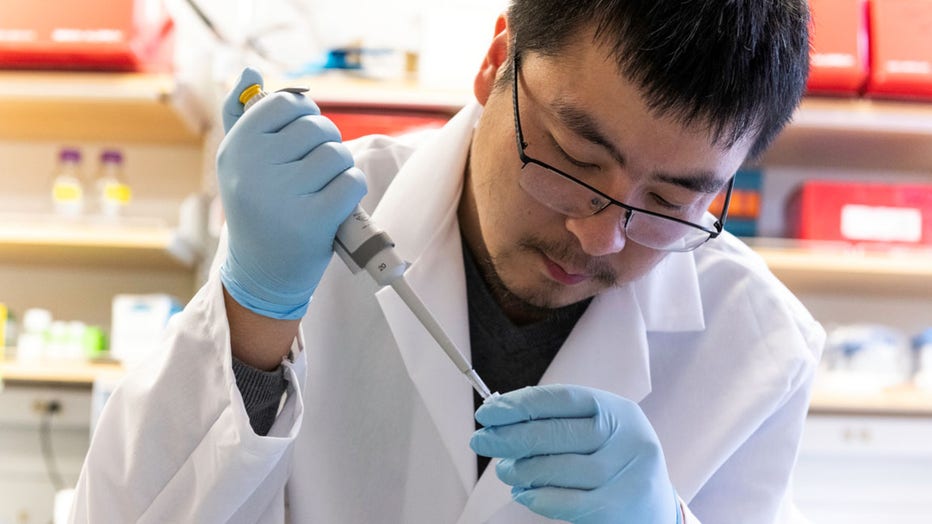UT Austin makes "breakthrough" in Coronavirus research, supports vaccine design
UT Austin makes “breakthrough” in Coronavirus research, supports vaccine design
Researchers from the University of Texas at Austin and the National Institutes of Health have made a critical breakthrough toward developing a vaccine for the 2019 novel coronavirus, according to a UT Austin press release.
AUSTIN, Texas - Researchers from the University of Texas at Austin and the National Institutes of Health have made a critical breakthrough toward developing a vaccine for the 2019 novel coronavirus, according to a UT Austin press release.
According to the University, researchers were able to create the first 3D atomic-scale map of the part of the virus that attaches to human cells and infects a patient. "Mapping this part, called the spike protein, is an essential step so researchers around the world can develop vaccines and antiviral drugs to combat the virus," the press release stated.
RELATED: Nine passengers aboard coronavirus evacuation flight test positive for virus
Alongside the 3D map, UT Austin researchers are also working on a related viable vaccine candidate stemming from the research.
Jason McLellan is an associate professor at UT Austin who has led the Coronavirus research. McLellan and his colleagues have spent many years studying other coronaviruses like SARS-CoV and MERS-CoV, states the release.

UT Coronavirus research (The University of Texas at Austin)
“As soon as we knew this was a coronavirus, we felt we had to jump at it,” McLellan said, “because we could be one of the first ones to get this structure. We knew exactly what mutations to put into this because we’ve already shown these mutations work for a bunch of other coronaviruses.”
Because the research team has experience and methods of understanding similar Coronaviruses, they were able to quickly and effectively turn the "spike proteins" into candidates for vaccines.
---------
Get breaking news alerts in the FOX 7 Austin News app. It is FREE!
---------
The research team was able to design and produce samples of their "spike protein" just two weeks after receiving the genome sequence of the virus from Chinese researchers. It took another 12 days to reconstruct the 3D atomic-scale map and submit it for peer review to Science.
Next, the research team plans to use their molecule to pursue another way of attacking the COVID-19 virus. The researchers plan on using the "spike protein" as a "probe" to isolate antibodies that are naturally created from patients who have been infected with the novel Coronavirus and have successfully recovered.
RELATED: San Antonio airbase to receive more Coronavirus evacuees, Department of Defense says
According to the researchers, in large enough quantities, the antibodies could help treat a Coronavirus infection soon after the patient is exposed. These antibodies could be used for first responders sent into highly infected areas on too short of a notice for the immunity from a vaccine to take effect.
The research team cites its success in part to the research done at UT Austin's new Sauer Laboratory for Structural Biology.
"We ended up being the first ones in part due to the infrastructure at the Sauer Lab. It highlights the importance of funding basic research facilities,” McLellan noted.
RELATED: Apple warns coronavirus will cut iPhone production, sales


